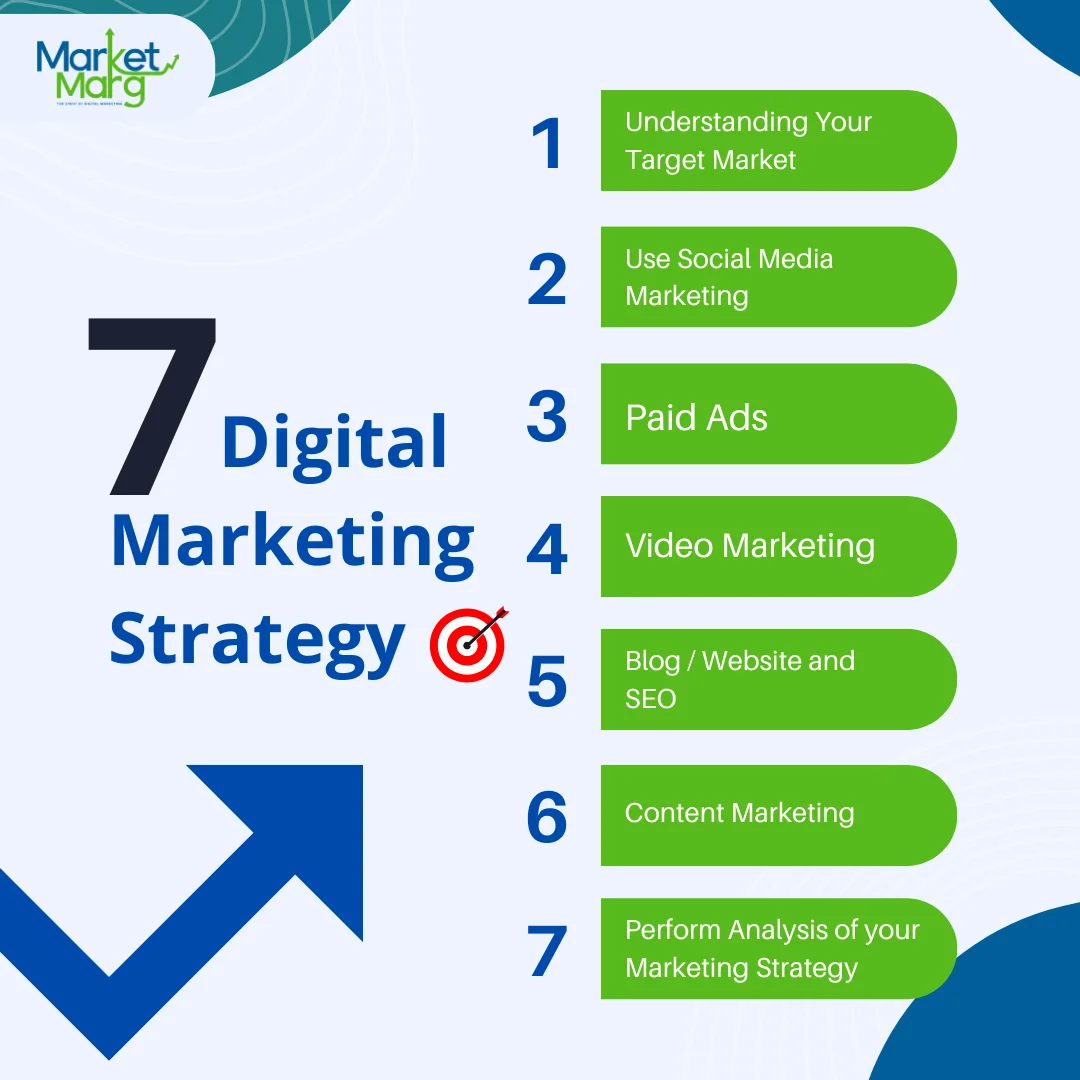In today’s fast-paced digital world, marketing has transformed dramatically. Have you ever wondered why some businesses thrive online while others struggle to get noticed? The answer often lies in their digital marketing strategies. Let’s explore seven powerful strategies that can help your business shine and grow in the crowded online space.
7 Digital Marketing Strategies for Success
Discover seven digital marketing strategies that can boost your online presence and attract more customers.
Understanding Digital Marketing
Digital marketing is like planting a garden. You need the right tools, strategies, and patience to see your efforts bloom. It involves promoting products or services through online channels to connect with potential customers where they spend most of their time: the internet. Let’s dive into the seven strategies that can help you create a thriving digital presence.
Strategy 1: Content Marketing
Content marketing is the heart and soul of digital marketing. It’s about creating valuable, relevant content that attracts and engages your target audience. Imagine content as a magnet that draws customers to your brand.
Creating Compelling Content
To succeed with content marketing, focus on quality over quantity. Your content should solve problems, answer questions, and provide insights. Blogs, videos, infographics, and podcasts are great ways to deliver engaging content.
Strategy 2: Social Media Engagement
Social media platforms are like bustling marketplaces. To stand out, you need to engage with your audience actively. Social media engagement goes beyond posting updates; it’s about building relationships.
Choosing the Right Platforms
Not all social media platforms are created equal. Find out where your audience hangs out. Are they scrolling through Instagram, tweeting on Twitter, or networking on LinkedIn? Choose the platforms that align with your brand and audience.
Strategy 3: Search Engine Optimization (SEO)
SEO is like a map that guides potential customers to your website. By optimizing your site for search engines, you increase the chances of appearing in search results when people look for products or services like yours.
Importance of Keywords
Keywords are the foundation of SEO. Research and incorporate relevant keywords into your website’s content, meta descriptions, and titles to improve your search engine rankings. Remember, the goal is to speak the same language as your customers.
Strategy 4: Email Marketing
Email marketing remains one of the most effective ways to reach your audience directly. Think of it as sending personalized invitations to your customers’ inboxes.
Building a Subscriber List
A robust email list is your golden ticket. Offer value to encourage visitors to subscribe, such as exclusive content, discounts, or free resources. Once you have their attention, keep them engaged with valuable and relevant content.
Strategy 5: Pay-Per-Click Advertising
PPC advertising is like renting a billboard on the internet. It allows you to display ads to potential customers who are already searching for related products or services.
Setting a Budget
Determine how much you’re willing to spend on PPC campaigns. Start small, analyze the results, and adjust your budget accordingly. Remember, PPC is about getting the right message in front of the right people at the right time.
Strategy 6: Influencer Collaborations
Influencers are the modern-day word-of-mouth marketers. Collaborating with the right influencers can amplify your brand’s reach and credibility.
Finding the Right Influencers
Look for influencers who align with your brand values and have a genuine connection with their audience. Authenticity is key; choose influencers who resonate with your target market.
Strategy 7: Analytics and Data-Driven Decisions
Analytics are the compass that guides your digital marketing journey. They provide insights into what’s working and what needs improvement.
Utilizing Analytics Tools
Tools like Google Analytics help you track website traffic, user behavior, and conversion rates. Use this data to make informed decisions and fine-tune your strategies for better results.
Conclusion
In the digital age, mastering these seven strategies can be the key to unlocking your business’s potential. Remember, digital marketing is not a one-size-fits-all solution. It requires ongoing effort, adaptation, and creativity. Are you ready to take your business to new heights?
FAQs
- What is the most important digital marketing strategy?While all strategies are important, content marketing often serves as the foundation, providing value and engaging your audience.
- How do I choose the right social media platform for my business?Identify where your target audience spends their time and choose platforms that align with your brand and goals.
- Why is SEO crucial for online success?SEO improves your website’s visibility, making it easier for potential customers to find you through search engines.
- How can I build an effective email subscriber list?Offer valuable content or incentives, such as discounts or exclusive resources, to encourage visitors to subscribe.
- What role do analytics play in digital marketing?Analytics provide insights into your marketing efforts, helping you make data-driven decisions to improve performance.



